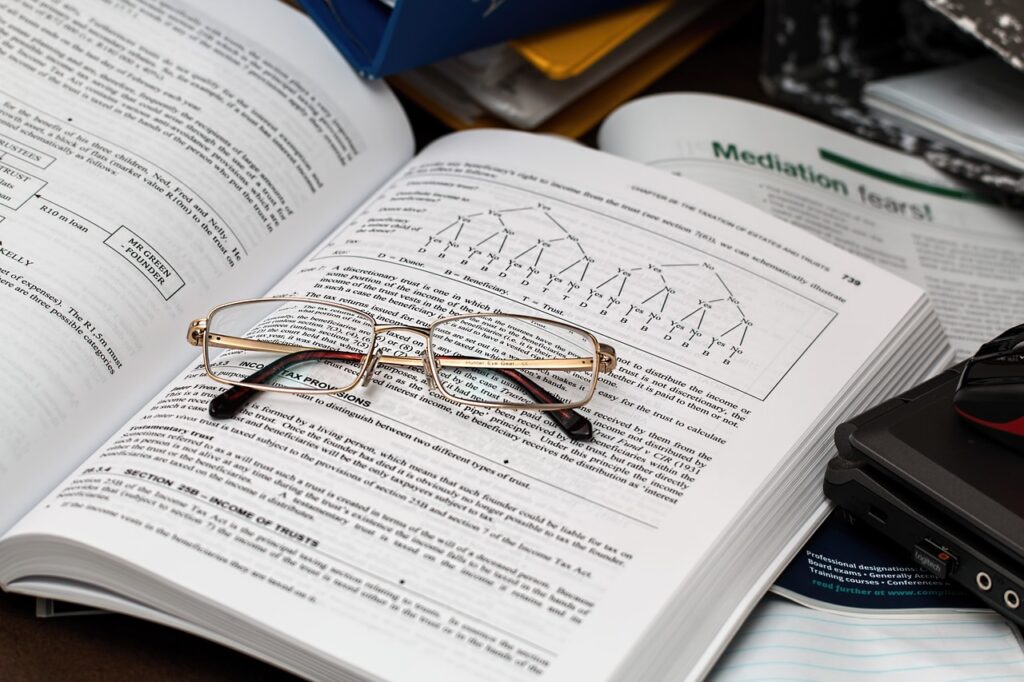Forensic accounting is a specialized field that combines accounting, auditing, and investigative skills to examine financial records and uncover fraud, embezzlement, or other financial crimes. As financial systems and transactions become more complex, the demand for forensic accountants has grown significantly. This guide offers insights into the field, outlining the skills, education, and certifications required for success, as well as the potential career paths and job opportunities available to those interested in pursuing a career in forensic accounting.
What is Forensic Accounting?
Forensic accounting is a unique combination of accounting, auditing, and investigation skills. It involves the examination of financial records to detect fraudulent activities, misappropriation of funds, or financial irregularities. This specialized field is crucial in various industries, as forensic accountants play a vital role in preventing and uncovering financial crimes.
Working in different sectors, forensic accountants assist law enforcement agencies, government organizations, financial institutions, and private businesses. They analyze financial data, identify discrepancies, and gather evidence for legal proceedings. To excel in this field, forensic accountants must possess strong analytical skills, attention to detail, and the ability to communicate their findings effectively.
There are common misconceptions about forensic accounting careers. Some believe it is limited to criminal investigations or that it solely involves number-crunching. However, the reality is far more diverse. Forensic accountants are involved in civil disputes, fraud prevention efforts, and even financial advisory services. Their expertise is invaluable in various situations, making a career in forensic accounting both challenging and rewarding.

Why Choose a Career in Forensic Accounting?
Forensic accounting offers several compelling reasons for those considering a career in this dynamic field. The increasing complexity of financial transactions and the growing awareness of financial fraud have led to a high demand for skilled forensic accountants. This demand translates to job growth and stability for professionals in the field.
Another attractive aspect of a career in forensic accounting is the potential for high earnings. Competitive salaries are common, and experienced professionals can command even higher compensation. Along with financial rewards, the field provides opportunities for career advancement and professional development, allowing individuals to grow and diversify their skills over time.
Additionally, forensic accountants have the unique ability to make a positive impact on society by contributing to the fight against financial fraud. Through their expertise and diligence, they protect businesses, individuals, and communities from the consequences of financial crimes. This sense of purpose adds an extra layer of fulfillment to a career in forensic accounting.
Education and Certification Requirements for Forensic Accounting Careers
A solid educational foundation is essential for those seeking a career in forensic accounting. Typically, a bachelor’s degree in accounting or a related field is necessary to enter the profession. Coursework in this degree program should cover topics such as financial accounting, auditing, taxation, and business law. For those looking to further specialize, a master’s degree in forensic accounting can provide advanced knowledge and skills to excel in the field.
In addition to formal education, professional certifications can enhance a forensic accountant’s credibility and career prospects. The Certified Public Accountant (CPA) designation is widely recognized and respected in the accounting profession. Additionally, the Certified Fraud Examiner (CFE), Certified Forensic Accountant Credentialing Program (CRFAC), and Certified in Financial Forensics (CFF) credentials demonstrate specialized expertise in fraud detection and financial forensics, respectively.
Continuing education is crucial for staying current with industry trends and regulations. As financial systems and legislation evolve, forensic accountants must adapt and update their skills to remain effective in their roles. Participating in professional development programs and maintaining certifications are essential components of a successful forensic accounting career.

Essential Skills and Qualities for a Successful Career in Forensic Accounting
A successful forensic accountant must possess a specific set of skills and qualities that enable them to excel in their work. Analytical and critical thinking skills are crucial, as they aid in the evaluation of financial data and identification of potential fraud. Attention to detail and accuracy are equally important, ensuring that even the smallest inconsistencies or irregularities do not go unnoticed.
Strong communication and interpersonal skills are vital for forensic accountants, as they often work in teams and collaborate with other professionals, such as lawyers, law enforcement officers, and corporate executives. They must be able to convey their findings clearly and convincingly, both in writing and verbally.
Ethical and professional integrity is essential in the field of forensic accounting. These professionals must adhere to high ethical standards and follow applicable laws and regulations, as their work can have significant legal and financial implications. The ability to work under pressure and meet deadlines is also critical, as forensic accountants often deal with time-sensitive matters.
Lastly, adaptability and flexibility are valuable traits in an ever-evolving industry. As financial systems and regulations change, forensic accountants must be able to adjust their methods and approaches to remain effective in their roles.
Job Opportunities and Career Paths in Forensic Accounting
Forensic accounting offers a variety of job titles and positions, depending on the specific focus and expertise of the professional. Some common roles include forensic accountant or auditor, fraud investigator or examiner, litigation support specialist, and financial crime analyst. Each of these positions requires a unique skill set and knowledge base, providing diverse opportunities for career growth.
Potential employers and industries looking for forensic accountants are numerous, ranging from public accounting firms and law enforcement agencies to government organizations, financial institutions, and insurance companies. These entities rely on the expertise of forensic accountants to detect and prevent financial fraud, ensuring the integrity of their operations.
As with any profession, job searching and networking are crucial for success in the forensic accounting field. Attending industry events, joining professional associations, and connecting with fellow professionals can help build a strong network and uncover job opportunities. Additionally, maintaining an up-to-date resume and a strong online presence, including a professional LinkedIn profile, can increase visibility and attract potential employers.
Top Forensic Accounting Firms
Deloitte Forensic: Deloitte is one of the “Big Four” accounting firms and has a prominent forensic accounting practice, offering a wide range of services related to fraud investigation, litigation support, and dispute resolution.
PwC Forensic Services: Another member of the “Big Four,” PwC provides comprehensive forensic accounting and investigative services, helping clients address financial and legal challenges.
EY Forensic & Integrity Services: Ernst & Young (EY) offers forensic accounting and integrity services to assist organizations in managing risks, resolving disputes, and maintaining compliance.
KPMG Forensic: KPMG is another major player among the Big Four accounting firms and provides a broad range of forensic services, including investigations, regulatory compliance, and litigation support.
Grant Thornton Forensic and Investigation Services: Grant Thornton’s forensic and investigation services help organizations address complex financial issues, including fraud detection and prevention.
CohnReznick LLP: CohnReznick provides forensic accounting services, including fraud investigations, asset recovery, and litigation support, to clients across various industries.
FTI Consulting: FTI Consulting is a global firm known for its forensic and litigation consulting services, which include forensic accounting, data analytics, and expert witness testimony.

Tips for Success in a Forensic Accounting Career
To succeed in a forensic accounting career, it is crucial to build a strong foundation through education and certification. Earning a relevant degree and obtaining professional certifications, such as the CPA, CFE, or CFF, can help establish credibility and expertise in the field.
Gaining practical experience and developing relevant skills is also essential. Pursue internships in forensic accounting, part-time positions, or even volunteer work to gain exposure to the field and hone the necessary skills. This hands-on experience can be invaluable in securing full-time positions and advancing in the profession.
Networking and building professional relationships play a significant role in career growth. Attend industry conferences, join professional organizations, and connect with fellow professionals to establish a robust network that can lead to job opportunities and collaborations.
Staying updated with industry trends, regulations, and best practices is vital in a constantly evolving field like forensic accounting. Regularly read industry publications, participate in online forums, and attend workshops or seminars to stay informed and maintain a competitive edge.
Lastly, pursue additional certifications and professional development opportunities to expand your skillset and expertise. This ongoing learning will not only enhance your resume but also open doors to new career paths and opportunities within the field of forensic accounting.
Unlock Your Forensic Accounting Potential
A career in forensic accounting offers numerous benefits and opportunities, including job growth, competitive salaries, and the ability to make a positive impact in the fight against financial fraud. By building a strong foundation through education and certification, gaining practical experience, and fostering professional relationships, individuals can thrive in this dynamic field. We encourage those considering a forensic accounting career to explore further resources and support available through Pathways to Advancement.

